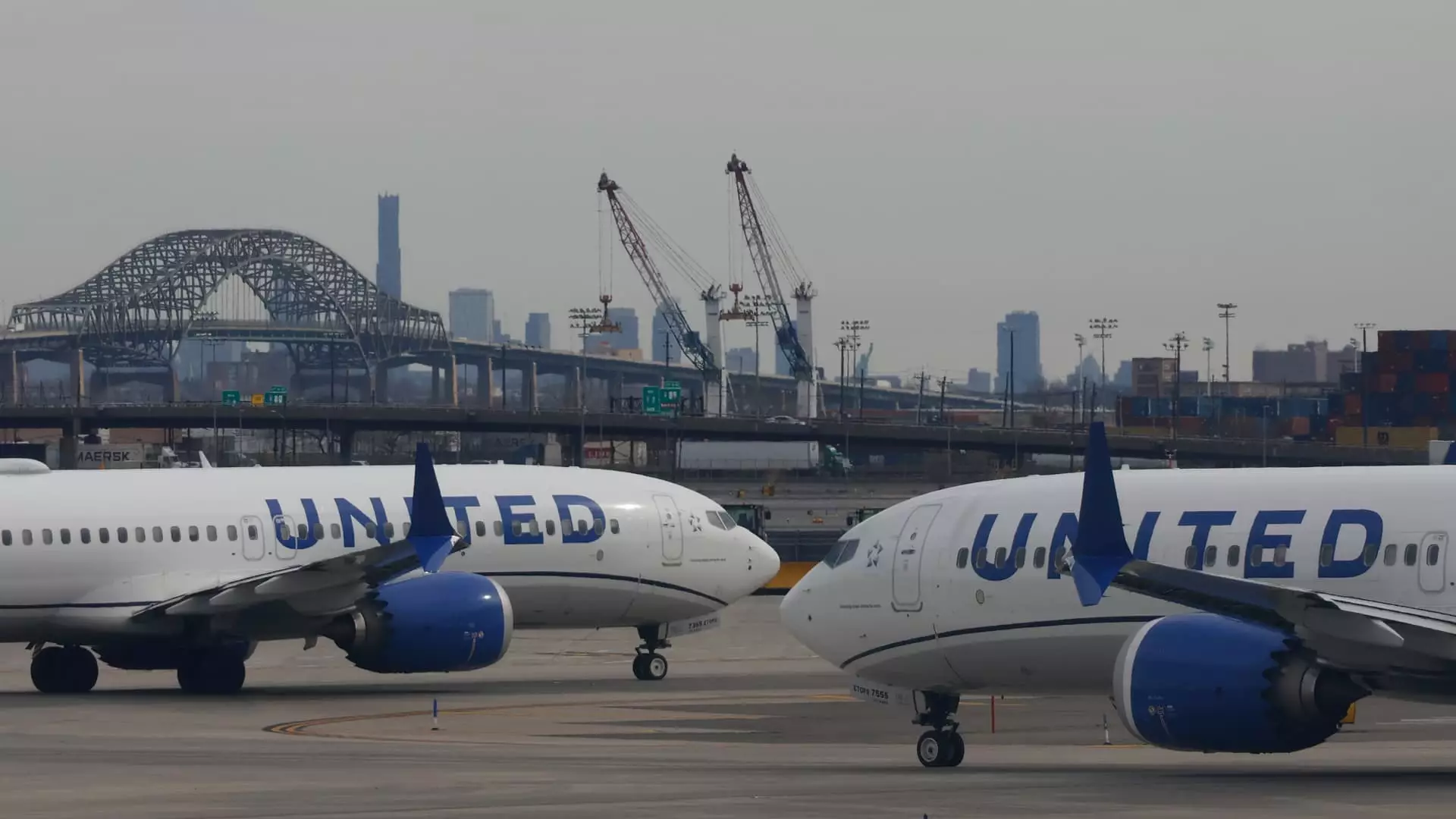The recent decision by United Airlines to cancel 35 daily roundtrip flights at Newark Liberty International Airport is far more than a fleeting inconvenience; it serves as a stark indicator of systemic failures within the air travel industry. Delays that stretch for hours, thousands of stranded passengers, and an atmosphere charged with frustration not only rob individuals of their precious time but also reflect a management crisis that has compromised the airline’s commitment to customer service. While reaching for the root causes leads us to the Federal Aviation Administration (FAA) and insufficient air traffic controller staffing, what looms larger in the backdrop is a political commitment to inadequately support critical infrastructure.
It is easy to apportion blame, and indeed CEO Scott Kirby laid it at the feet of the FAA, pointing out that the air traffic control facility at Newark is “chronic understaffed.” However, one must ask: how did we reach this point? The air travel system in the United States has been operating under a patchwork of outdated technology, deficient staffing, and bureaucratic gridlock that leaves passengers caught in a web of despair. When you combine years of stagnation with short-term fixes, what emerges is an ad-hoc system that crumbles under its own weight.
Short-Term Fixes, Long-Term Repercussions
The decision to cut flights marks just another example of airlines opting for short-term solutions instead of investing in long-term strategies. The irony is palpable—by canceling flights, United aims to act in their customers’ interest, yet they inadvertently strip away travel options just as easily as they curtail operational difficulties. Efforts to mitigate the chaos are commendable, but where is the accountability for those at the helm?
Transportation Secretary Sean Duffy’s remarks about the inadequacies of the current air traffic control system underline a persistent truth: the U.S. infrastructure system hasn’t received the comprehensive overhaul it desperately needs. Those who oversee transportation policies have been quick to express outrage, but where are their tangible solutions? Modern challenges demand modern solutions, and lip service won’t suffice in an airport where 20% of air traffic controllers “walked off the job” amid systemic failures. This level of attrition should be unsettling, demanding urgent reforms rather than empty promises to “fix” outdated technology.
A Case for Urgency: Time for Reform
To advocate for change is not to ignore the intricacies involved in overhauling such a crucial sector; it is to demand that we not get lost in the minutiae while passengers suffer. Duffy’s call for an “all-new air traffic control system” should resonate well beyond casual commentary. Actual reform must transcend mere rhetoric; it requires investment in a workforce where air traffic controllers are adequately trained and compensated, thereby preventing a future hemorrhage of skilled labor from an already brittle profession.
Investment in human capital is just as vital as technological upgrades. If United Airlines recognizes the need for flight restrictions akin to those at LaGuardia, it should also recognize the imperative of nurturing human resources. A two-pronged approach addressing both structural capacity and personnel needs is vital to cultivate resilience in the system.
Unity Amid Discontent: A Call for Solidarity
United Airlines’ recent disruptions provide a window into the broader malaise plaguing the air travel sector. The events at Newark should not only galvanize airlines to adopt strategies mitigating future cancellations; they should also encourage a dialogue among stakeholders, from airline executives to policymakers. It’s incumbent upon us to unify in our demands for a reliable and efficient air travel experience.
Navigating the complexities of air travel amid staffing shortages and antiquated technology may appear daunting, but the true test will be whether we can harness this crisis to create a more modern and equitable infrastructure. The present moment harbors forgotten opportunities for improvement; it’s time to seize them, lest we remain forever grounded in frustration.

